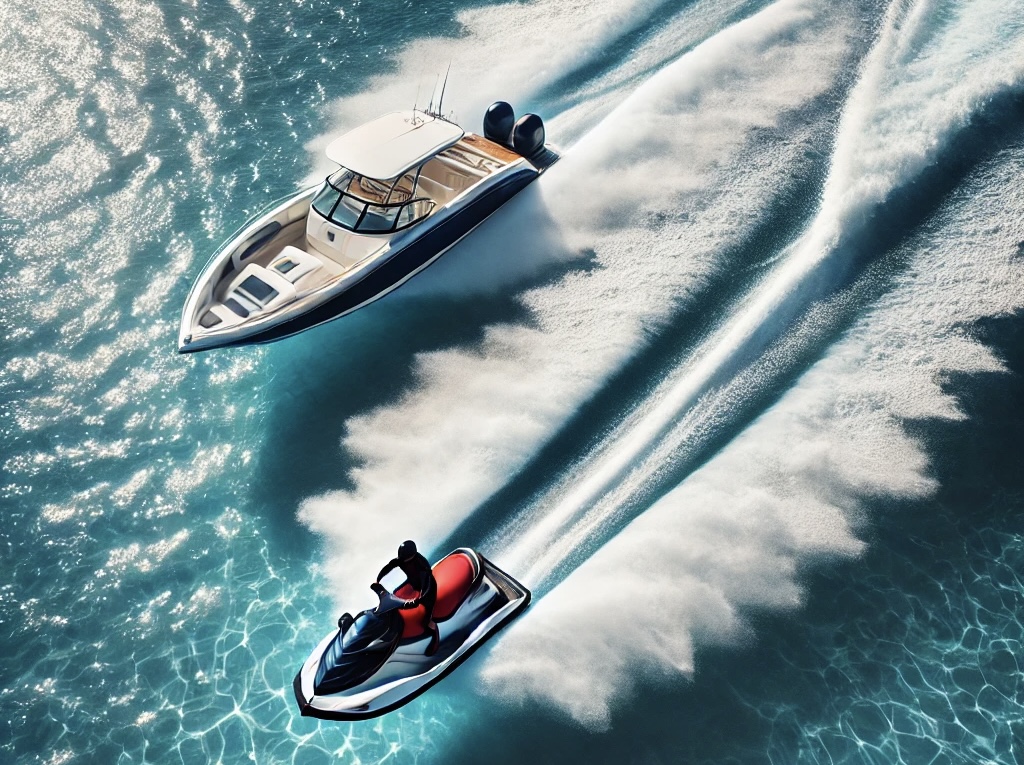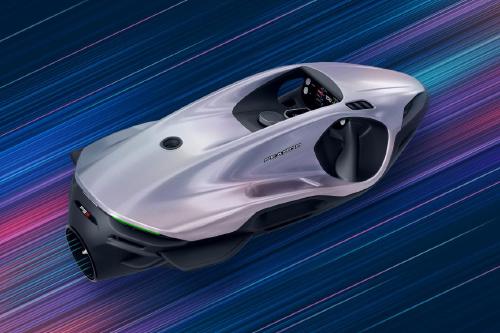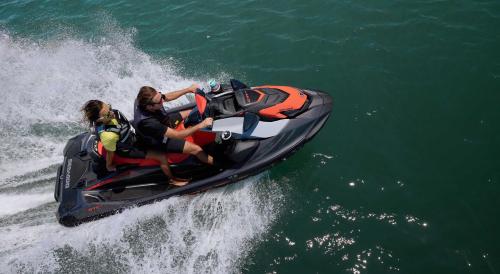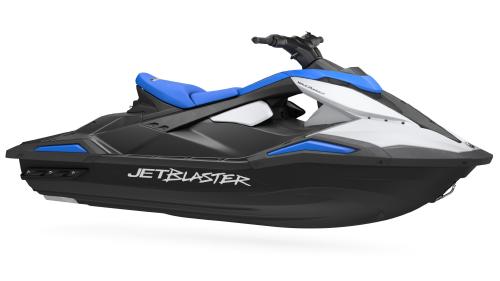So, you’re standing on the dock, staring out at the shimmering water, and dreaming about the perfect way to enjoy those sunny days. You’ve got two major contenders in your mind: the sleek and speedy personal watercraft (PWC) or the classic small power boat. Both have their perks, but which one is going to be the right fit for your lifestyle, wallet, and water adventures? Let’s dive into the details and see what each has to offer.
The Thrill of Personal Watercraft
First up, let’s talk about PWCs, often affectionately referred to as jet skis. These little speed demons are designed for high-speed fun and excitement on the water. With their nimble handling, they’re perfect for zipping around lakes or coastal waters, and they offer a unique thrill that can’t be replicated on a traditional boat.
One of the biggest draws of PWCs is their ability to maneuver easily. Whether you want to carve through waves or pull off some sweet tricks, these machines are designed for agility. Plus, they’re usually lighter and easier to transport, making them a great option if you want to hit multiple bodies of water in a day.
Cost-wise, PWCs generally come with a lower price tag than small power boats. You can find decent models starting around $5,000, while more advanced versions can run upwards of $15,000 or even more if you’re looking for extra features. And don’t forget about the cost of insurance, maintenance, and fuel, which can add up. However, overall, the initial investment is often less than that of a small power boat.
The Allure of Small Power Boats
Now, let’s switch gears and take a look at small power boats. These vessels come in various shapes and sizes, and they offer a different kind of experience than PWCs. If you’re looking for something that provides more space and versatility, a small power boat might be the way to go.
One of the most significant advantages of small power boats is their capacity. Most can comfortably accommodate a group of friends or family, making them an excellent choice for social outings or family adventures. Whether you’re fishing, cruising, or just lounging on the water, having that extra space can make all the difference.
In terms of cost, small power boats can vary widely. Entry-level models can start around $10,000, but you can easily find yourself spending $30,000 or more if you want something with more power, better features, or more space. Like PWCs, they also come with additional costs for maintenance, insurance, and fuel, which can quickly stack up, especially if you’re using them frequently.
Riding vs. Cruising
When it comes to the experience on the water, it’s essential to consider what kind of activities you envision. Are you looking for adrenaline-pumping rides and quick trips? Or do you prefer leisurely cruises with friends and family?
PWCs are fantastic for solo adventures or quick trips with a buddy. They’re built for speed, so you can zip around and experience the thrill of the water firsthand. If you’re into water sports like wakeboarding or tubing, a PWC can tow a smaller tube, making it a fun addition to the mix.
On the other hand, small power boats excel in providing a more relaxed atmosphere. You can set sail for an entire day, pack a cooler, and even bring along some fishing gear. They offer the ability to traverse larger bodies of water and can often handle rougher conditions than a PWC. If your idea of an ideal day on the water involves lounging, fishing, or just soaking up the sun, a small power boat may be your best bet.
Maintenance and Upkeep
Let’s not forget about maintenance – an essential factor of boat ownership that often gets overlooked in the excitement of purchasing a new watercraft. PWCs tend to require less maintenance than small power boats. Their simpler design means fewer parts to worry about, and they can be easier to store in the off-season.
Small power boats, however, can require more upkeep. Engines can be more complex, and if you’re looking at models with additional features like electronics or larger engines, those can add to the maintenance burden. It’s essential to factor in the time and money you’ll need to keep your boat in tip-top shape.
Storage and Transportation
When it comes to storage and transportation, PWCs shine again. They are compact and can often be stored in a garage or smaller space without much hassle. If you’re short on storage options, a PWC can fit the bill nicely. Plus, they’re relatively easy to tow, making them a great choice for spontaneous trips to different lakes or coastlines.
Small power boats, however, require a bit more consideration. Depending on the size, you may need a dedicated space for storage, and they can be trickier to trailer, especially if you’re new to boating. That said, the experience of having your own boat can be incredibly rewarding, and many boaters find the extra effort worth it for the memories created out on the water.
The Social Aspect
One thing to consider is the social aspect of boating. If you enjoy hosting friends or family on the water, a small power boat can be a better fit. With more seating and space, you can easily accommodate a group for a day out on the water.
Conversely, if you’re more of a solo adventurer or just want to share quick rides with a friend, PWCs can still provide that thrill without needing a bigger space. You can always do a PWC outing with friends, hopping from one machine to another, but it’s a different vibe than lounging on a boat together.
Cost Comparison
When comparing costs, it’s essential to look at both the initial investment and the ongoing expenses. Here’s a quick breakdown:
- PWC Costs: Starting around $5,000, with many models ranging up to $15,000. (USD)
- Small Power Boat Costs: Entry-level models start around $10,000, with many reaching $30,000 or more. (USD)
Both options come with additional expenses like maintenance, insurance, and fuel, so be sure to consider those in your budget.
In the end, the choice between a personal watercraft and a small power boat really boils down to what kind of experience you want to have on the water. Whether it’s high-speed thrills or relaxed cruising, both have something unique to offer.




Use the share button below if you liked it.